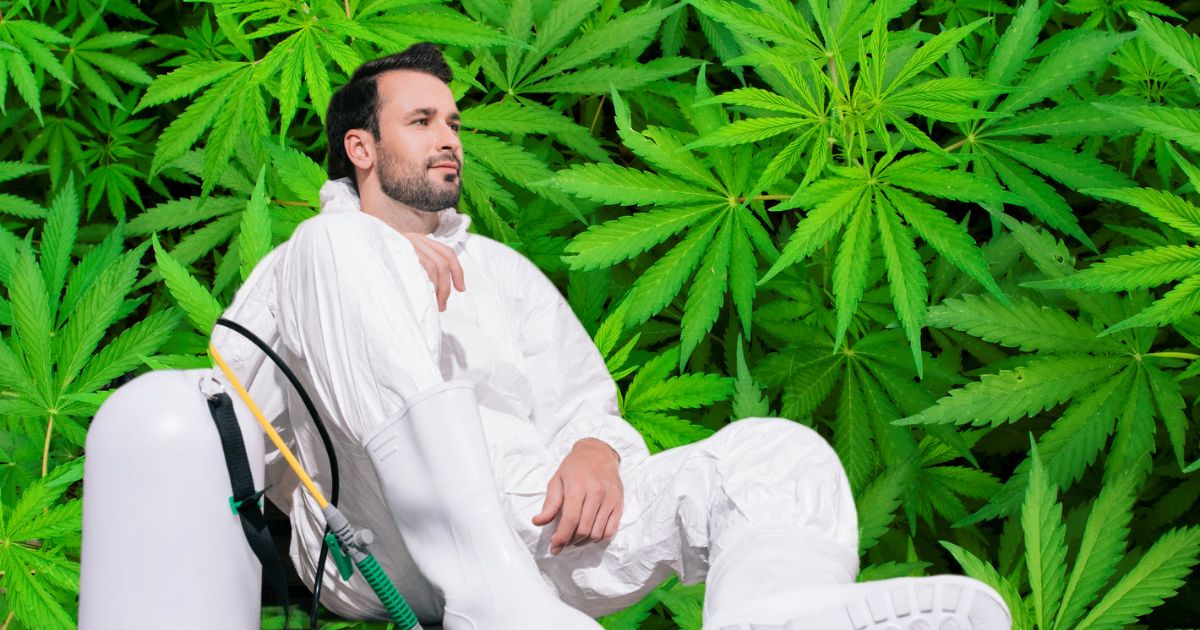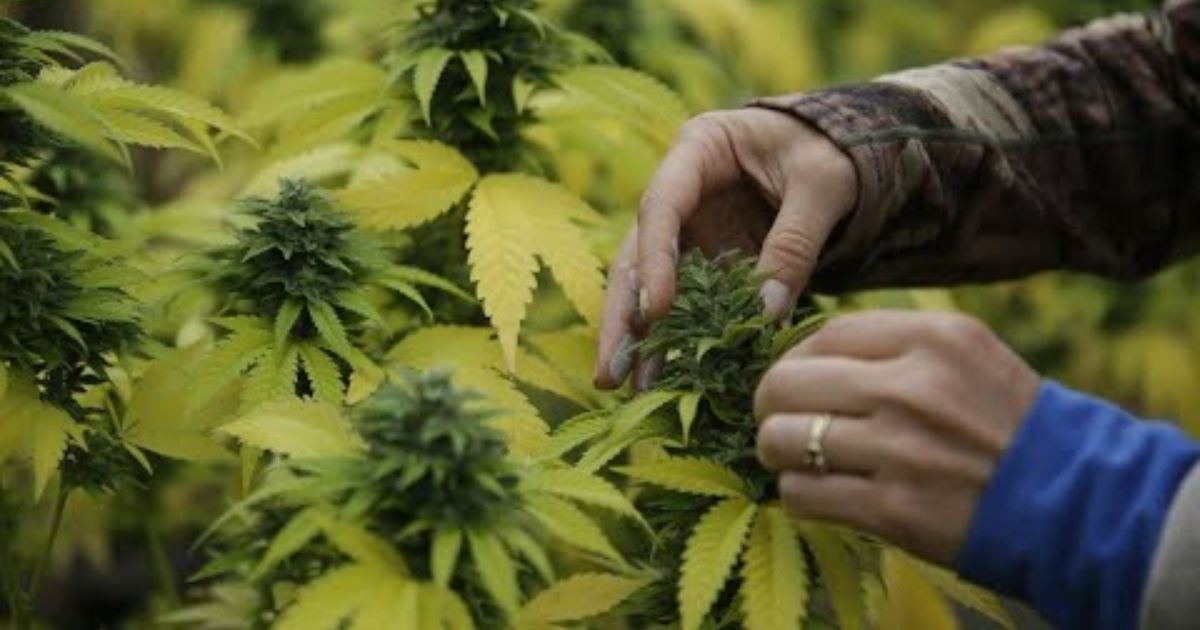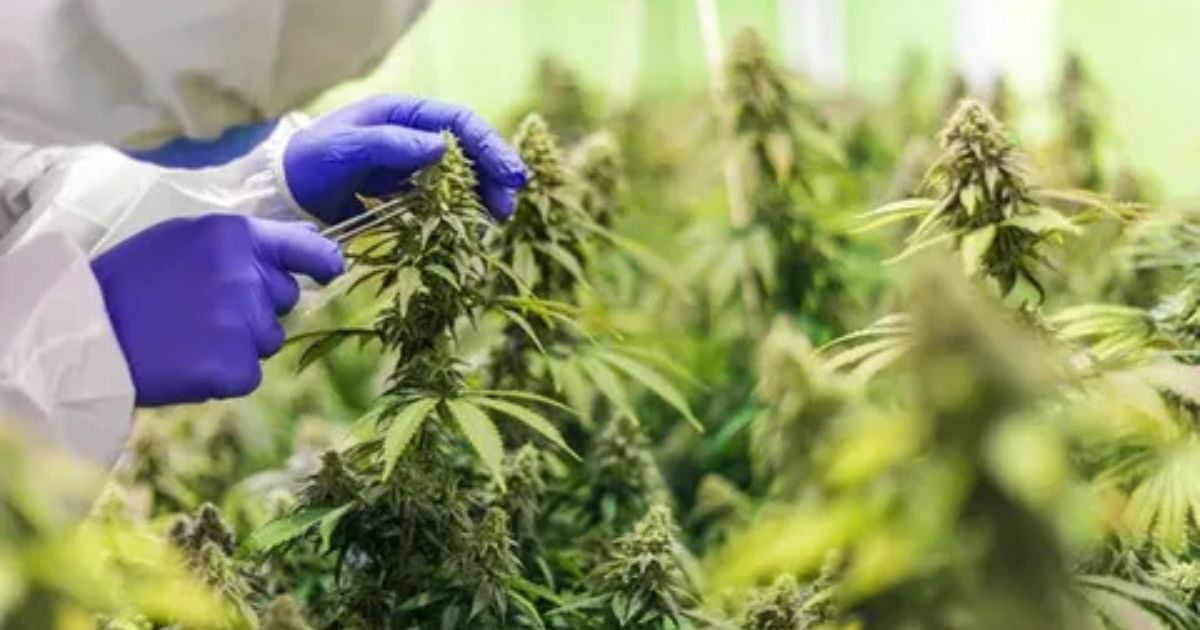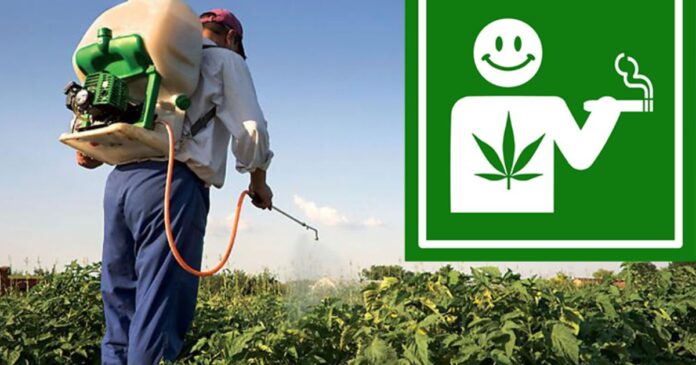Stiiizy pesticides has become one of the most recognizable names in the cannabis industry, especially for vape pods and pre-rolls. With sleek packaging, innovative technology, and wide product availability, the brand has built a loyal following among both recreational and medical users. However, as cannabis continues to grow in popularity, so do concerns about product safety, particularly when it comes to pesticide use.Pesticides are a controversial topic in the cannabis world. While they can protect crops from pests and mold, they may also leave behind harmful residues that end up in the final product.
For consumers who inhale cannabis through vaping or smoking, even trace amounts of these chemicals can raise health concerns. This has led many Stiiizy users to ask an important question: Are Stiiizy products free from pesticides, and how can I be sure I’m getting a safe, authentic product?In this article, we’ll take a closer look at pesticides in cannabis,stiiizy pesticides approach to product testing, the risks associated with counterfeit cartridges, and what every consumer should know to make informed choices.
What Are Pesticides in Cannabis?
Chemicals or biological agents called pesticides are applied to plants to protect them from insects, fungi, mold, and other threats during cultivation. In traditional agriculture, pesticides can help farmers protect large fields of crops from being destroyed. However, when it comes to cannabis, the conversation is far more sensitive.Cannabis is often inhaled directly into the lungs, whether smoked, vaped, or dabbed. Unlike fruits or vegetables that can be washed or peeled, any pesticides used during cultivation may remain in the dried flower or extract, eventually making their way into the final product. stiiizy pesticides means consumers could inhale chemical residues directly, which raises health concerns.Not all pesticides are inherently harmful. Many natural or organic pest control methods exist, but the problem arises when growers use unapproved, unsafe, or excessive amounts of chemicals.
Some of these substances can break down into toxic compounds when heated, posing risks that range from mild respiratory irritation to more serious long-term health effects.Because of these risks, How To Choose The Right CBD Oil In India cannabis regulations in states like California (where Stiiizy is based) require strict laboratory testing for pesticides before products ever reach dispensary shelves. These tests measure dozens of potential contaminants, ensuring that levels fall within safe limits or the product fails and cannot be sold legally.pesticides in cannabis are a genuine concern, but regulated brands are legally obligated to address them. The bigger issue often comes from unregulated or counterfeit products, which may completely bypass safety testing and pose the highest risk to consumers.
Stiiizy’s Reputation in the Cannabis Market

Since its launch in Los Angeles in 2017, Stiiizy has grown into a powerhouse in the cannabis industry. With 37 dispensaries across California, it stands as the state’s largest cannabis retailer, and its vape products have led sales since 2023. In fact, the New York Times recently acknowledged Stiiizy as the best-selling cannabis brand in America, highlighting its vast reach and influence
This success hasn’t come without scrutiny. The brand has faced a wave of serious allegations, including:
- Accusations of marketing high-potency products toward minors,
- Overstating THC content on product labels,
- And reports of vaping cartridges contaminated with harmful pesticides
One Los Angeles Times investigation further tied co-founder Tony T. Huang to properties used for illicit cannabis sales. Although Huang and Stiiizy denied involvement, they did receive $1 million in civil penalties from the city attorney’s office.
A former CEO, Jon Avidor, also filed a lawsuit in 2023 alleging wrongful termination and illegal company activities. However, Disposable Vape Store Near Me the dispute was settled without further legal revelation.Stiiizy has also attracted regulatory attention in New York, where officials audited the company amid claims of sourcing products from the black market. Stiiizy’s leadership maintains they complied with all laws, asserting their partners were producing surplus inventory, not facilitating illicit activity.
Consumer Perception: Strong Despite Controversy
Despite the controversies, pesticides in weed brand loyalty remains notably strong. In surveys across states like Arizona and Michigan, it ranks among the most “reliable” cannabis brands, garnering positive sentiment ratings above 97%The brand’s storytelling, transparent compliance efforts, and cultural authenticity continue to resonate with consumers.
Cultural Branding & Lifestyle Appeal
A big part of cannabis pesticides appeal lies in its savvy branding. Rather than just marketing cannabis, they’ve positioned themselves as a lifestyle brand, drawing in consumers similarly to how luxury fashion labels cultivate desirability.
A few standout strategies include:
- In-house content creation, featuring docuseries and polished visual storytelling,
- Membership programs that offer limited releases and exclusive experiences,
- Cultural sponsorships (e.g., music, art, and film events),
- And premium packaging with collectible value, all reinforcing a curated, high-design image
This approach justifies their premium pricing, backed by a strong emphasis on terpene profiles, extraction methods, and brand experience over THC alone.
Are Stiiizy Products Tested for Pesticides?
In California, the state where Stiiizy is headquartered, all licensed cannabis products must undergo mandatory lab testing before reaching dispensary shelves. This testing covers a wide range of contaminants, including pesticides, heavy metals, residual solvents, mold, and bacteria. Products that fail to meet state safety standards cannot be legally sold.
pesticides in cannabis as a licensed operator, is required to comply with these regulations. Each batch of cannabis flower, concentrate, or vape cartridge is supposed to be tested for dozens of potential pesticide residues. Exploring The Benefits Of Dynavap India These tests are conducted by state-certified laboratories that measure whether any traces are within the legal safety thresholds set by California’s Bureau of Cannabis Control (BCC).
However, the controversy arises from two areas:
Counterfeit Products
Stiiizy’s popularity has made it one of the most counterfeited cannabis brands in the U.S. Fake cartridges often flood the unregulated market and do not undergo any testing. Many of the pesticide contamination reports tied to stiiizy pesticides are actually linked to counterfeits, not genuine products.
Allegations of Mislabeling and Contamination

Some consumer reports and lawsuits have accused Stiiizy of selling products that failed pesticide tests or contained inaccurate THC labeling. While Stiiizy has denied wrongdoing and maintains its compliance with state testing, the allegations highlight why independent, third-party verification is so necessary in the cannabis industry.For consumers, the best way to verify if a Stiiizy product has passed pesticide testing is to check the Certificate of Analysis (COA). Every legal cannabis product in California must come with a batch-specific COA, which details lab results for pesticides and other contaminants. These are often accessible through QR codes on packaging or dispensary websites.
In summary, yes, stiizy pesticides products are legally required to be tested for pesticides. The bigger concern isn’t the brand’s licensed inventory, but rather the counterfeit versions in circulation, which bypass testing entirely and pose the most significant risk to consumer health.
Health Risks of Pesticide Exposure in Cannabis
When cannabis is grown with unapproved or excessive pesticides, the risks don’t just stay in the soil; they can make their way into the flower, concentrates, and vape cartridges that consumers use. Unlike produce that can be washed before eating, cannabis products are typically inhaled directly into the lungs, which means any chemical residues are absorbed much faster into the bloodstream. This is why pesticide exposure in cannabis is considered more concerning than in traditional agriculture.
Short-Term Health Risks
- Respiratory irritation: Inhaling chemical residues may trigger coughing, throat irritation, or difficulty breathing.
- Headaches and dizziness: Certain pesticides can cause mild but noticeable neurological symptoms.
- Allergic reactions: Some individuals may develop skin irritation or other allergic responses after exposure.
Long-Term Health Risks
- Toxic buildup in the body: Continuous exposure to even small amounts of pesticides can accumulate over time.
- Organ damage: Studies suggest that prolonged pesticide exposure may affect the liver, kidneys, and nervous system.
- Carcinogenic potential: Some pesticides, platenza syrup uses in hindi when burned or vaporized, may release toxic byproducts linked to cancer risks.
High-Risk Groups
- Medical patients: Those using cannabis to treat conditions like cancer, epilepsy, or chronic pain may be more vulnerable to pesticide-related harm.
- Frequent users: Heavy daily consumers face greater exposure levels compared to occasional users.
- Young adults & immunocompromised individuals: Developing or weakened systems are less able to process toxic residues.
The danger doesn’t always come from regulated cannabis brands like Stiiizy, which must pass state-mandated tests, but from counterfeit or black-market products. Fake vape cartridges, in particular, are notorious for containing unsafe levels of pesticides, cutting agents, and other harmful chemicals.
How Consumers Can Stay Safe
The rise of counterfeit and untested cannabis products means that consumers need to be extra cautious about where and how they buy their cannabis. Even a trusted brand like Stiiizy can fall victim to fakes, which often contain harmful pesticides, cutting agents, or other contaminants. Thankfully, customers can take several precautions to keep themselves safe.
Buy Only from Licensed Dispensaries
Always purchase cannabis products from state-licensed dispensaries. These retailers are legally required to sell only products that have passed state-mandated testing for pesticides, heavy metals, mold, and other contaminants. Street dealers or online sellers without verification often push counterfeit or black-market products.
Check for Certificates of Analysis (COAs)
Every legal cannabis product in California (and most regulated states) comes with a Certificate of Analysis (COA) from a third-party lab. These documents confirm the product’s safety by listing test results for pesticides and other contaminants. Many Stiiizy products include a QR code that connects to the batch’s COA immediately on the packaging. If a product doesn’t have a COA, consider that a red flag.
Watch for Counterfeit Packaging
Counterfeiters often copy stizzy pesticides sleek packaging to trick buyers. To avoid fakes:
- Look for authentic holographic seals or QR codes.
- Check spelling errors, blurry logos, or cheap packaging quality.
- Verify the batch number online through Stiiizy’s official website when possible.
Trust Your Senses
If something seems “off“ about the product, trust your instincts:
- An odd smell or taste may indicate contamination.
- Oil that looks unusually thin, dark, or watery could be diluted with unsafe additives.
- Poor vapor quality or a burning sensation in the throat can signal a counterfeit pod.
Stay Updated on Recalls and News
Cannabis regulators occasionally issue recalls for products that fail testing. Staying informed through official state websites or dispensary announcements can help consumers avoid unsafe batches.
The Counterfeit Stiiizy Problem
In the cannabis industry, one of the most significant risks to customer safety isn’t always the licensed products; it’s the counterfeits. Because of its popularity, Stiiizy has become one of the most counterfeited cannabis brands in the U.S. Fake pods, cartridges, and packaging are sold online and in unlicensed shops, does himcolin gel increase size often at prices that seem too good to be true.
Why Counterfeits Are Dangerous
Unlike licensed Stiiizy products that undergo state-mandated testing, counterfeit cartridges are made in unregulated labs or even home garages, with no oversight or quality control. This means they can contain:
- Pesticides and fungicides are not approved for inhalation.
- Cutting agents like vitamin E acetate are linked to serious lung illnesses during the 2019 vaping crisis.
- Heavy metals from low-quality hardware.
- Unknown fillers that can produce toxic byproducts when heated.
In short, counterfeit products are not just inferior; they can be seriously harmful.
How to Spot Fake Stiiizy Products
Fake products are often designed to look almost identical to the real thing, but there are usually small giveaways:
- Packaging errors: Misspelled words, blurry fonts, or poor print quality.
- Missing QR codes or seals: Authentic Stiiizy pods include holographic seals and scannable QR codes linking to lab results.
- Suspicious pricing: If a deal seems far cheaper than dispensary prices, it’s likely fake.
- Unlicensed sources: Gas stations, smoke shops, and street sellers often carry counterfeit Stiiizy pods.
Consumer Impact
Many of the reports of “Stiiizy cartridges testing positive for pesticides“ actually trace back to counterfeit products, not genuine ones sold through licensed dispensaries. Unfortunately, consumers often don’t realize the difference until they’ve already used the product and experienced side effects like coughing, chest pain, or dizziness.
Why Counterfeits Keep Spreading
The demand for Stiiizy products, combined with the brand’s sleek design and strong street appeal, makes it an easy target for counterfeiters. Online platforms and unlicensed retailers provide a steady pipeline for fake goods, which not only damages Stiiizy’s reputation but also puts consumers at serious health risk.
The Future of Cannabis Testing and Safety

As the cannabis industry matures, safety and transparency are becoming just as crucial as potency and flavor. While pesticide testing is already a legal requirement in regulated markets like California, the future will likely bring even stricter standards, improved technology, and greater consumer empowerment.
Stricter Regulations Across States
Not every state currently has the same rigorous testing rules as California. However, as cannabis legalization expands, more states are expected to adopt uniform national standards for pesticide limits, heavy metals, and other contaminants. This would close loopholes and ensure that cannabis products remain consistently safe, no matter where they are purchased.
Advances in Testing Technology
Laboratories are already using highly sensitive methods like liquid chromatography and mass spectrometry to detect pesticide residues. Shortly, testing could become:
- Faster: Real-time testing that reduces delays in getting products to market.
- Cheaper: Lower costs could make testing more accessible for small growers, leveling the playing field.
- More comprehensive: Expanding to detect a broader range of contaminants, including new synthetic chemicals.
Blockchain and Transparency Tools
Some cannabis brands are exploring blockchain-based tracking systems, where every step of cultivation and testing is recorded on an unchangeable digital ledger. This means consumers could scan a QR code and instantly see not only the pesticide test results but also the entire supply chain history of their product.
Consumer Education and Awareness
As more consumers learn about the dangers of counterfeit products and the importance of COAs, demand for verified, safe cannabis will continue to grow. This consumer pressure will likely push brands, including Stiiizy, to be even more transparent and proactive about pesticide safety.
Collaboration Between Regulators and Brands
To combat counterfeits, regulators and cannabis companies may work more closely together, Tips For Making The Most Of Cannabis Concentrates sharing data and creating authentication systems that make it easier for customers to confirm they’re buying genuine products.
Conclusion
Stiiizy has built its reputation as one of the most popular cannabis brands in the U.S., offering sleek products that appeal to both casual and medical users. But with popularity comes scrutiny, and pesticides remain one of the most pressing concerns in the cannabis industry.The reality is that licensed Stiiizy products sold in regulated dispensaries are required to undergo rigorous testing for pesticides and other contaminants. The greater danger often lies in counterfeit cartridges that bypass all safety checks, flooding the black market with unsafe, unregulated products. For consumers, this is where the bulk of pesticide-related risks truly originate.
By staying informed, checking Certificates of Analysis, and buying only from licensed dispensaries, cannabis users can significantly lower their chance of coming into contact with dangerous chemicals. As testing technology improves and regulations tighten, the future looks promising for safer and more transparent cannabis products.
FAQ
Does Stiiizy use pesticides in its products?
Stiiizy, as a licensed cannabis brand, must comply with state regulations that require all products to pass lab testing for pesticides. While trace amounts may occasionally appear due to cultivation practices, legal products are considered safe for consumption.
How can I tell if my Stiiizy product is real or fake?
Check for authentic packaging, holographic seals, QR codes linking to a Certificate of Analysis (COA), and consistent product quality. Avoid suspiciously cheap products or unlicensed sellers, as these are often counterfeit.
Are pesticides a concern in all cannabis brands?
Any cannabis brand can theoretically be exposed to pesticides if cultivation practices aren’t carefully controlled. Licensed brands like Stiiizy undergo rigorous testing, but counterfeit or unregulated products may contain unsafe levels of substances.
What are the health risks of using cannabis with pesticides?
Inhaling pesticide residues can cause short-term effects like respiratory irritation, headaches, and dizziness, and long-term exposure may affect organs, the nervous system, or even increase cancer risk. Medical patients and frequent users are especially vulnerable.
How can I check if a Stiiizy product passed pesticide testing?
Look for the Certificate of Analysis (COA), usually accessible via QR codes on the packaging or dispensary websites. The COA details lab results, including pesticide testing, ensuring the product is safe to use.
What should I do if I suspect a Stiiizy product is counterfeit?
Do not use the product. Please report it to the dispensary or Stiiizy directly, and verify authenticity by checking the batch number and COA online. Stick to licensed dispensaries for future purchases.




